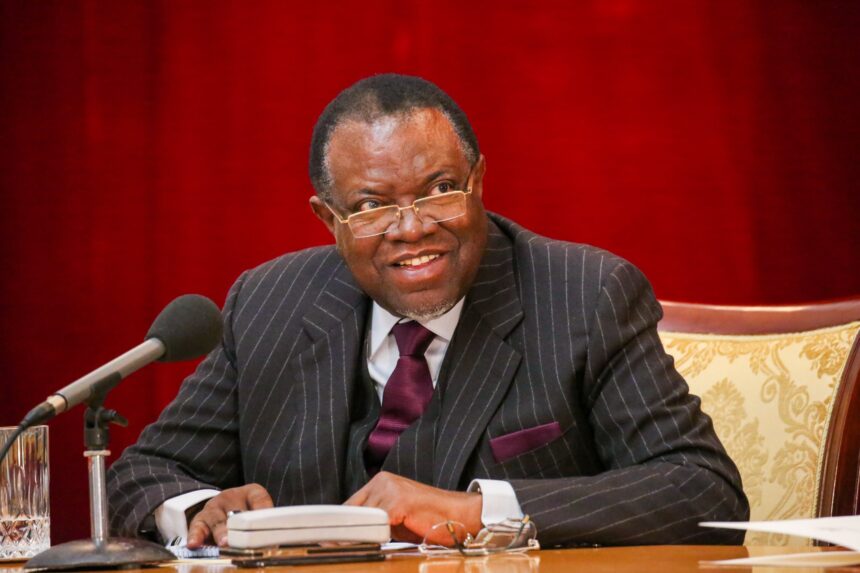President Hage Geingob has told a continental renewable energy initiative that Africa could become a pivotal part of the global energy industry.
“Africa has the potential to become a key player in the global energy market and we should seize the opportunity by doing the right things and at the right time. Yes, the time is right to do the right things,” he observed.
He also called on the implementation of goal seven of the sustainable development missions which looks at the access to affordable, reliable, sustainable and modern energy for all.
Geingob stated this virtually yesterday on the occasion of the opening of the second Renewable Energy Forum of the African Renewable Energy Initiative, adding that for Africa to achieve full energy access by 2030, the continent should invest around US$120 billion per annum.
“The climate change crisis, which is posing unprecedented threats to our existence, leaves us with no choice but to ensure the provision of clean energy from renewable energy sources to the majority of households and businesses to spur development in a manner that is sustainable for people and our planet,” he said.
Goal seven highlights that the lack of access to energy supplies and transformation systems is a constraint to human and economic development. The environment provides a series of renewable and non-renewable energy sources.
Geingob noted: “the common position on energy access puts a strong emphasis on increasing the uptake of renewable energy to ensure a low carbon and climate-resilient trajectory for the African continent.”
He added that the green hydrogen project is part and parcel of Namibia’s long-term decarbonisation agenda and there are focus efforts on achieving large-scale, low-cost renewable energy development.
The UN Environment Programme states that increased use of fossil fuels without actions to mitigate greenhouse gases will have global climate change implications.
Energy efficiency and the increased use of renewables contribute to climate change mitigation and disaster risk reduction.
It further states that maintaining and protecting ecosystems allow the use and further development of hydropower sources of electricity and bioenergy.


